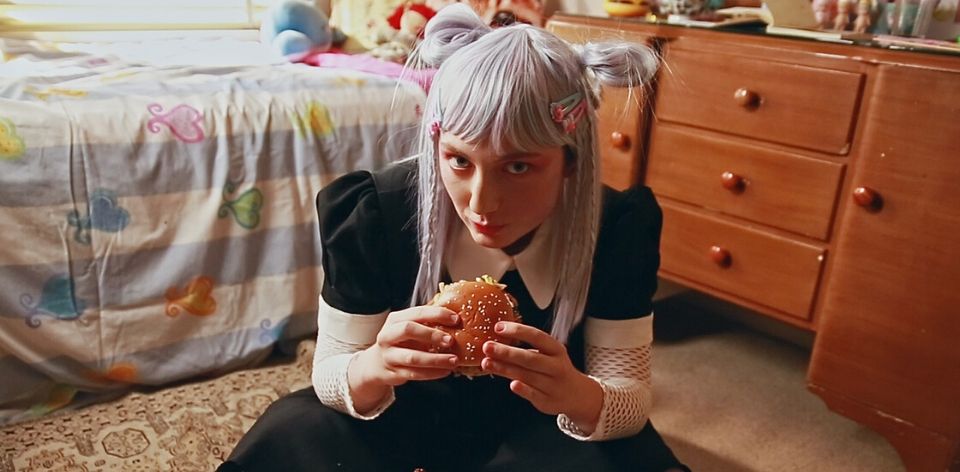The Dendy Awards for Australian Short Films return with a diverse collection of stories.
For some reason, my luck has never held with seeing the Dendy Awards for Australian Short Films. Each year, when the Sydney Film Festival goes on sale, tickets for the sessions sell out in a heartbeat. It’s a testament to how supportive the local network is for up-and-coming Australian filmmakers.
So, the global pandemic and the shift to a virtual format has allowed me to dip into some of the emerging voices around the country. Of particular interest this year is how many of those voices are from women, Indigenous Australians, migrants and the LGBTQI+ communities.
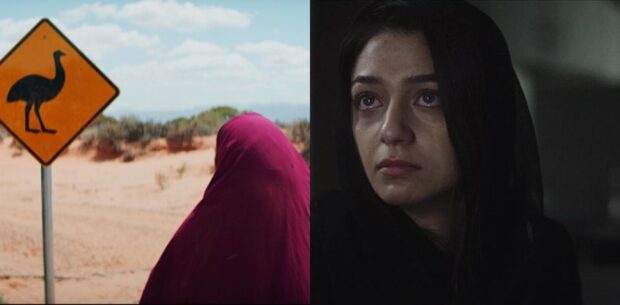
AYAAN (Dir: Alies Sluiter), for example, examines the intersection of identities in the vastness of the Australian outback. Beginning its life as a Columbia University thesis film production, it follows an asylum seeker (Babetida Sadjo) with an infant who encounters an Indigenous man (Trevor Jamieson) and must decide whether to trust him. With minimal dialogue, Sluiter and cinematographer Jeremy Rouse (Burden, The Rover) tell us so much about these characters, exquisitely performed by Sadjo and Jamieson.
Similarly, THE FALL (Dir: Mert Berdilek) is a seriously stylish film about a Syrian mother (Taj Aldeeb) who faces tragedy shortly after arriving in Australia. The tensions between the old and new worlds are explored through the lens of religion and faith. It’s a two-hander that doesn’t offer answers but ponders a number of big questions.
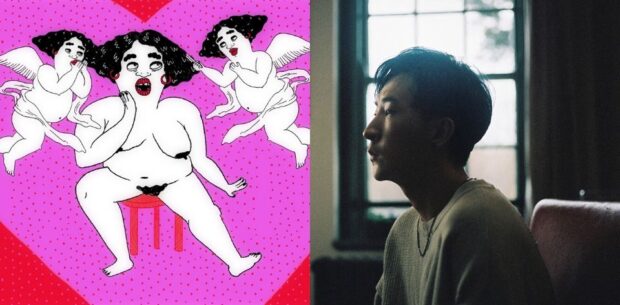
GNT (Dir: Sara Hirner, Rosemary Vasquez-Brown) and MUKBANG (Dir: Eliza Scanlen) both examine the pressures of social media on young women.
The former is a cleverly animated piece about Glenn, a woman who will do anything to conquer her social media channels, but learns it can be educational too. She might miss the point by the end of the film, but it’s a refreshingly positive spin on how the platforms can be activated to inform. Scanlen’s piece similarly brushes against the exploration of sexuality in a public space, when high schooler Nadia Zwecker discovers the online subculture of ‘mukbang’ (think: food-based ASMR).
On the darker end of the scale is IDOL (Dir: Alex Wu), a curious musing on the nature of controlled celebrity. In the short, Chinese idol Wan Ran (Nan Chen) is called in for a crisis meeting after the suicide of a fan. A single take that never leaves Chen’s face allows the performance to play out naturally, and it’s a quietly powerful slice.
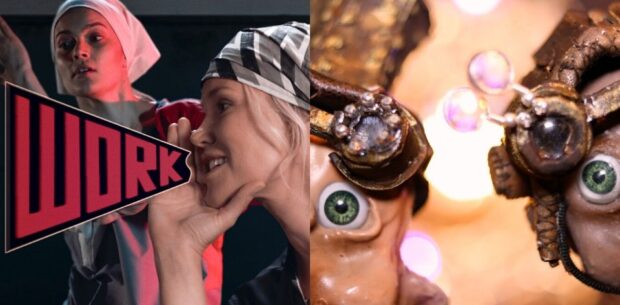
OBSCURA (Dir: Emily Jordan, Hannah Jordan) and I WANT TO MAKE A FILM ABOUT WOMEN (Dir: Karen Pearlman) are both films bout filmmaking, using elements of fantasy to explore the processes. The animated film from the Jordan sisters is a wonderful storybook throwback, combining stop-motion and live action for a Steampunk voyage inside of a camera. Pearlman’s film is about the Russian revolutionary women artists of the 1920s, using striking graphic art and iconography to investigate what they may have been doing under Stalin’s regime.
Arguably the most experimental of the bunch is THE QUIET (Radheya Jegatheva), an enveloping mixture of sound, narration and animation that not only explores the beauty of silence, but attempts to understand one person’s relationship with his brother.
Rounding out the selection is Olivia Aleksoski’s coming-of-age narrative HER OWN MUSIC, a sexual awakening story that follows some familiar tropes of the genre. Meanwhile, in GREVILLEA, director Jordan Giusti explores what happens when an incarcerated Jewish teen decides to get a tattoo despite his religion’s traditions.
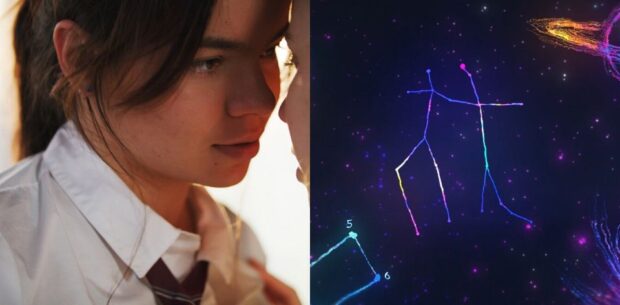
For just $14, you can rent all 13 films, including the Screenability bundle, on the SFF website right now, along with bonus material including filmmaker introductions followed by Q&A sessions and live panels.
The 67th Sydney Film Festival Awards Ceremony will broadcast for free on Thursday 18 June 2020.
SFF 2020 runs in virtual mode from 10-21 June and other ticket packages are now available.

